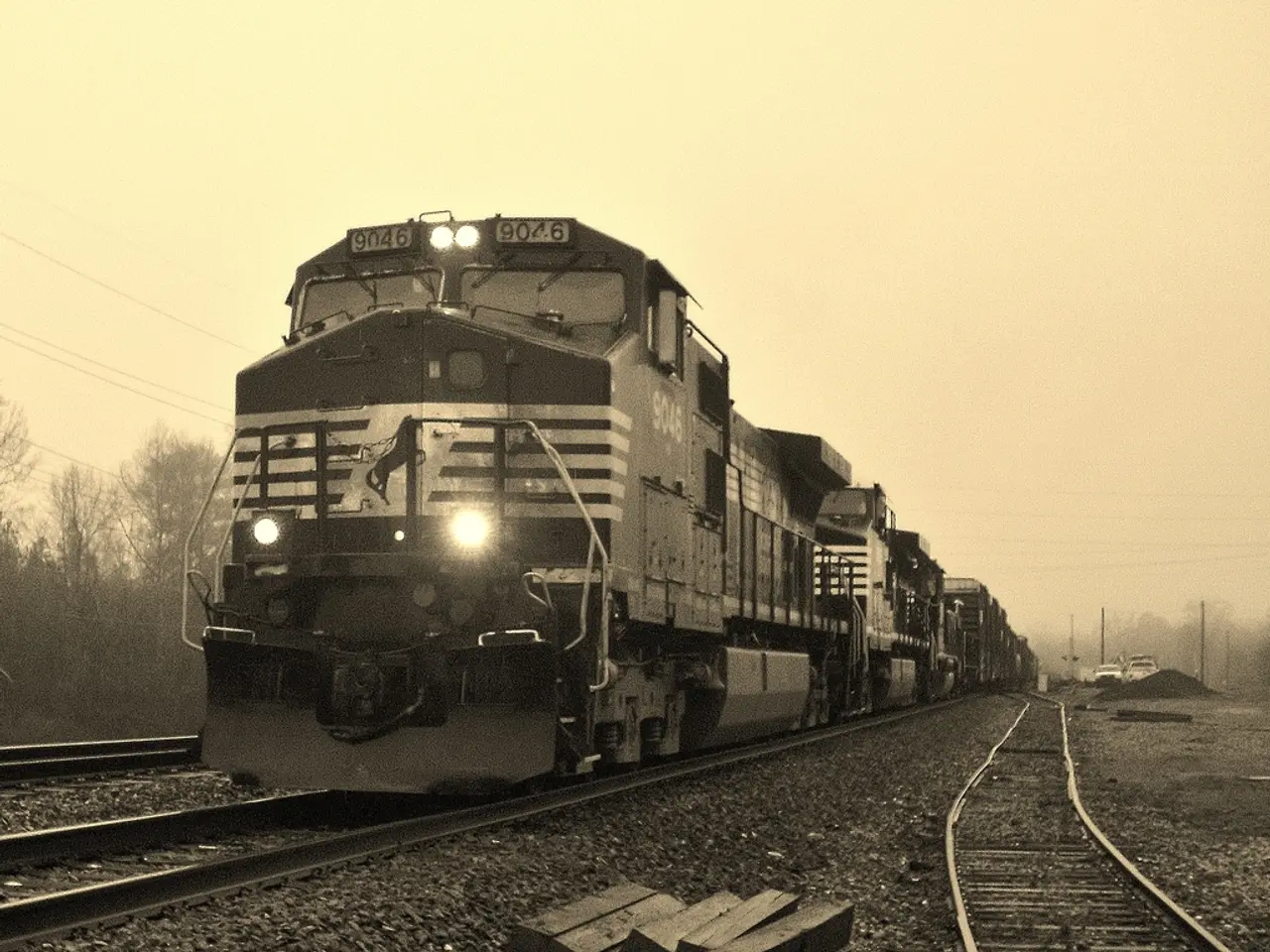Expansion of railway systems, implementation of catenary systems, and combating fires: SNCF adapting to the summer heatwave
The Southwest region of France has recently experienced significant delays on the high-speed Paris-Angoulême-Bordeaux line due to a fire in the Charente region, causing disruptions for thousands of travelers [1]. As the long weekend of August 15 approaches, with 1.6 million travelers expected, it's crucial that the railway network is equipped to handle the challenges posed by extreme temperatures.
Fires, especially in dry sectors, are a concern for SNCF, as hard braking can throw sparks that can cause fires. To prevent such failures, SNCF has air-conditioned its installations, but they can still occur [2]. The catenary, the electric cables suspended above the tracks, expand more than steel during heatwaves, potentially causing malfunctions or breakdowns.
In response, massive investments are planned to address these heat-related issues and ensure the safety and efficiency of the SNCF railway network. These investments involve deploying advanced thermal management technologies, upgrading infrastructure, and increasing monitoring and maintenance automation [3].
Key measures include the use of innovative materials like IsoMat thermal technology, which can lower peak temperatures by over 20% in signalling cabinets, reducing heat-induced failures [1]. HVAC upgrades are also being implemented, with temporary air conditioning units during heatwaves and the trial use of heat-deflective covers on vulnerable equipment [2].
Automated monitoring of overhead line equipment is another crucial aspect, moving from manual inspections to real-time monitoring systems for improved safety and operational reliability under extreme heat conditions [4]. Vegetation management and trackside safety are also being prioritized, with regular maintenance to reduce fire risks and overheating impacts [2].
SNCF is also investing in infrastructure renewal with materials that reduce greenhouse gas emissions and withstand climate stress better, supporting long-term resilience [3]. Additionally, efforts are being made to ensure traction power and station facilities operate increasingly on green electricity, indirectly supporting climate adaptation by reducing overall warming drivers linked to fossil fuel use [3].
While direct recent details are limited, these types of technological partnerships, infrastructure upgrades, and strategic plans are the key trends being adopted by leading rail operators worldwide, including SNCF [1][2][3][4]. For example, SNCF's CEO, Jean-Pierre Farandou, has called for an additional 1 billion euros per year to be invested in the network [5].
The French government seems to have listened to this request, as the Minister of Transport announced a bill project in July that aims to increase investments in the railway network by 1.5 billion euros per year, with the goal of reaching 4.5 billion euros per year by 2028 [6].
Despite these efforts, it's important to note that ground temperature can reach up to 60°C, but standards are designed to withstand up to 66°C. SNCF carries out systematic clearing along the tracks each year to limit fire risks, and counterweights are used to regulate the lengthening of the catenary to prevent tearing when a train passes [2].
In conclusion, massive investments are required to maintain the railway network in good condition, and innovative solutions are being implemented to ensure the safety and efficiency of the SNCF railway network during extreme temperatures. These investments focus on technological innovation, infrastructure upgrades, automation of asset monitoring, and climate-conscious energy use to maintain the safety and efficiency of rail services during extreme temperatures.
[1] The Guardian [2] Rail Technology Magazine [3] Railway-News [4] Railway Gazette International [5] Railway-News [6] SNCF
Read also:
- Deepwater Horizon Oil Spill: BP Faces Record-Breaking Settlement - Dubbed 'Largest Environmental Fine Ever Imposed'
- Citizen Thekla Walker, Minister, advises: "Let's focus on our own homes first"
- British pension trust seeks minister's support for review of fiduciary obligations
- Weekly activities in the German federal parliament








